30 days countdown to the Olympics, is Paris ready?
A hundred years later, Paris, the iconic capital of France, will once again make its global appearance as the host of the Olympic Games in July 2024. This Olympic Games not only has innovative moves at the opening ceremony. Competitors from all over the world will take a cruise ship on the Seine River to participate in the water opening ceremony, but also many events will be held in iconic venues in central Paris. Paris is full of expectations, and the world is also full of expectations.There is only one month left before the opening of the 2024 Paris Olympics. Is Paris, which has entered the final sprint of the Olympics, ready?
The Eiffel Tower wears the Olympic rings
The Paris Olympics will have 35 large venues that can accommodate 10500 athletes, 20000 registered journalists and 45000 volunteers from different national and regional Olympic committees and refugee delegations. One of the highlights of the 2024 Paris Olympics is the integration of a large number of competition venues into Paris's famous cultural attractions. Along the Seine River all the way east from the Eiffel Tower, the reporter visited a series of temporary Olympic venues being built. This is the core area in Paris and the most concentrated area of attractions. It is also the area with the most concentrated venues during the Olympics. The first is the most famous Eiffel Tower. Just before the countdown to 50 days, the huge Olympic rings were hung on the tower.
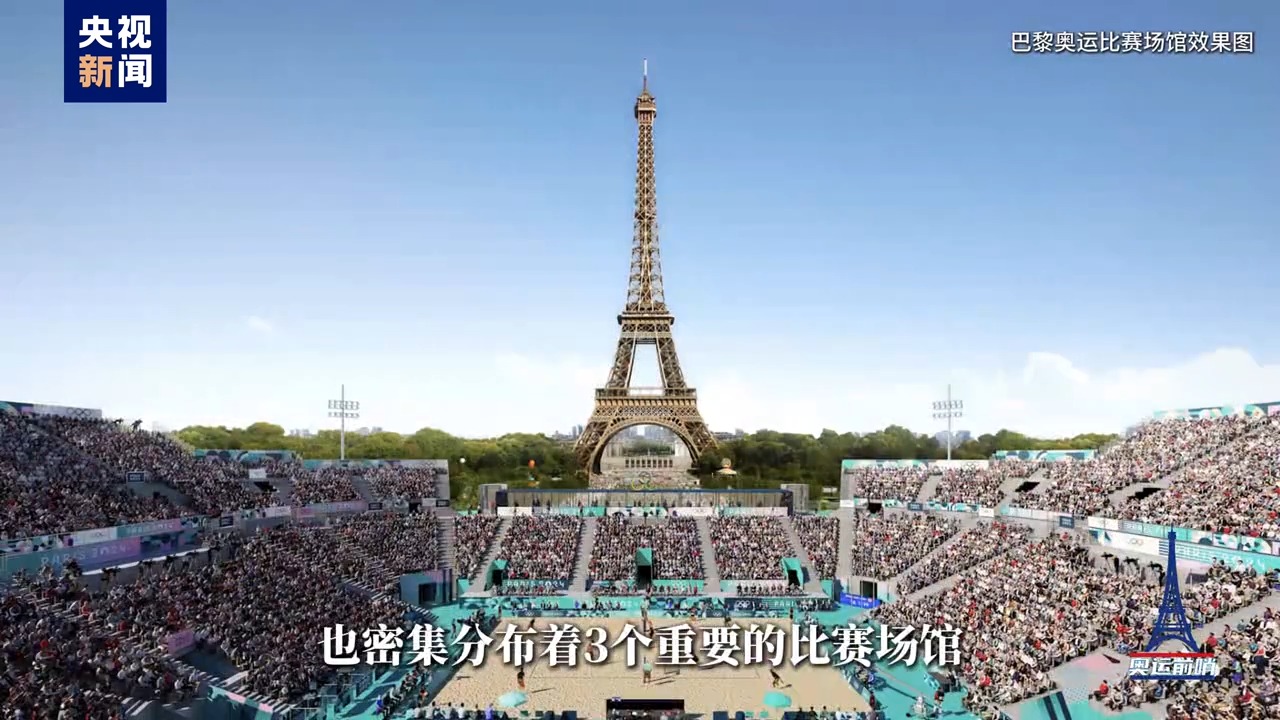
There are three competition venues distributed below the Eiffel Tower, which will hold track and field, beach volleyball, judo, wrestling and other competitions. The opening ceremony will also be held here. Construction is currently in the final sprint stage. On the south side of the tower is the famous Champ de Mars. A temporary venue for beach volleyball competitions is being built below this side. At present, the construction of the stands of the venue has been basically completed, and the sand for the competition has also been transported into the stadium.
Alexander III Bridge will be the destination of multiple events
Continue east along the Seine River to the Alexander III Bridge. During the Olympics, the Alexander III Bridge will become the destination of multiple events, including road cycling individual time trials, marathon swimming, triathlon and other events. Currently, 6000 spectator seats have been installed here, and vehicles have been banned on the bridge. On the other side of the bridge is the Grand Palace, which has been closed for many years. It will open during the Olympics, when fencing and other competitions will be held. Enclosed by a wall on the south side of the bridge is the Invalides Academy, which will hold archery and other events.
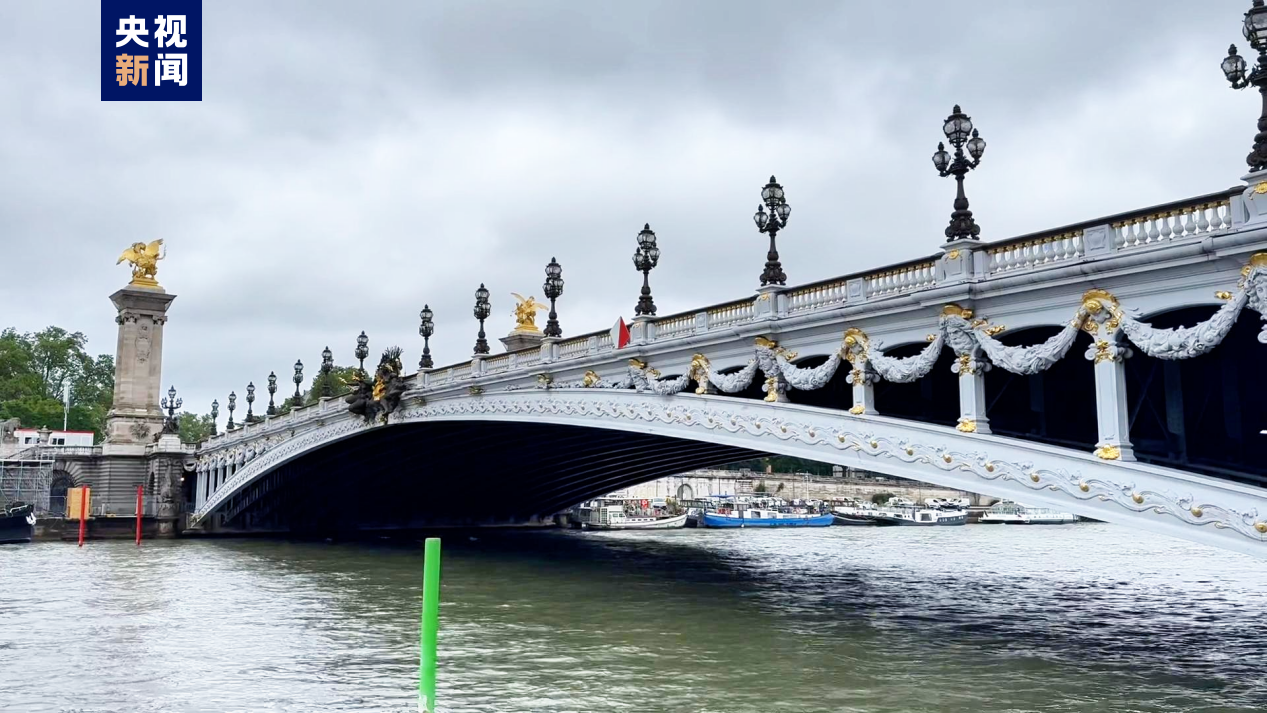
△ Alexander III Bridge
The Paris Olympic Organizing Committee built a huge underground water storage tank near the Austerlitz Metro Station next to the bridge, which can accommodate 46000 cubic meters of wastewater, with a depth of 30 meters and a diameter of 50 meters. They hope this will collect rainwater and prevent any untreated sewage from overflowing into the river, thereby ensuring that the Seine River water quality meets standards and ensuring the health and safety of athletes participating in water events.
Break dancing competition entered the Olympics for the first time
Walking along the bank of the Seine River, you can still see busy construction sites everywhere. The reporter continued east to the venue at Concorde Plaza. Due to traffic control, vehicles had to detour. The site was also surrounded by light fences. Construction vehicles and workers came in and out. Construction bungalows and several coils of large cables could be seen everywhere. Stand stands as high as apartment buildings have also been built on both sides of the southeast corner.
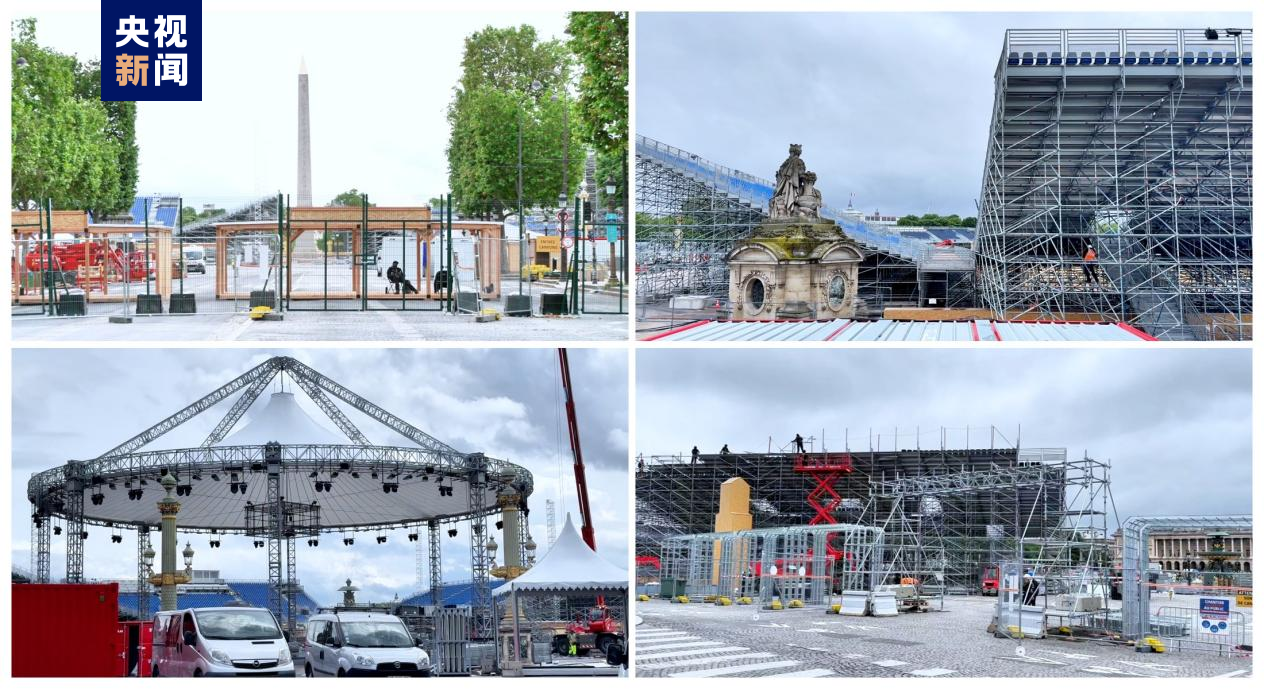
△ Construction site of Concord Plaza
The break dancing competition, officially listed as an official Olympic event for the first time, will be held at Concorde Place. As one of the largest public squares in Paris, Place de la Concorde will be turned into an urban sports park during the Olympics. In addition to break dancing, skateboarding, freestyle BMX and three-person basketball events will all be staged here. Sports and cultural carnivals for various cultural performances, photography exhibitions, and street art activities will also be held here. It is understood that the renovated square stands seats will be able to accommodate 37000 people to watch the game live at the same time.
How can the Olympic Village cool down athletes if there is no air conditioning installed?
It is understood that in addition to the construction of these temporary venues and renovated venues next to the Seine River, which are nearly completed, some other permanent venues are currently ready. In particular, the Olympic Village, which has attracted much attention, has also been officially delivered. Previously, because the Olympic Village was not equipped with air conditioning, it attracted attention from all walks of life.
The Olympic Village is located in the city of Saint-Denis, a suburb in the north of Paris. The entire Olympic Village covers an area of about 52 hectares and a total of 82 buildings and about 3000 apartments have been built. During the Olympics, it will receive more than 14000 athletes and staff, and during the Paralympics it will receive approximately 9000 people. The Olympic Village has been officially delivered, and supporting equipment such as bedside tables and athlete centers are still being equipped.
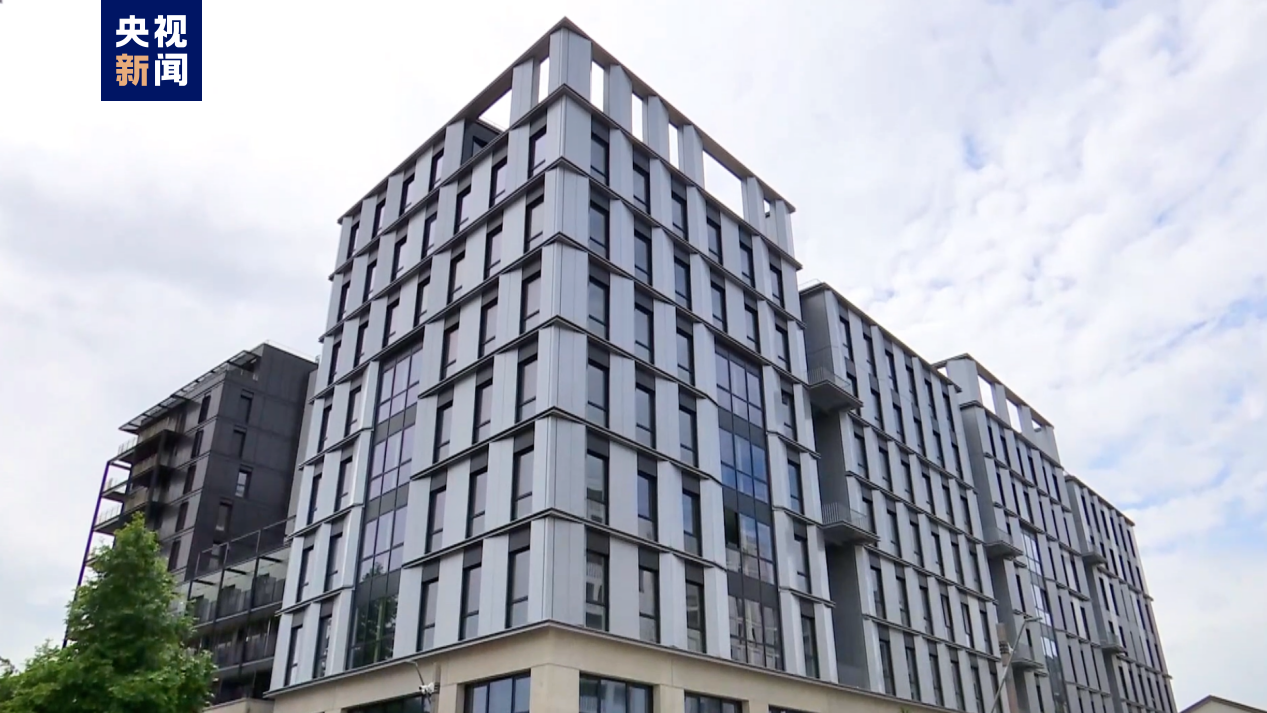
△ Exterior view of Olympic Village Athletes Apartment
During the construction of the Olympic Village, a Chinese construction company also participated. It not only renovated two apartment buildings, but also built two new buildings, bringing "Chinese wisdom" to the ecological and environmental protection of the Olympic Village. Lou Liangjun, the person in charge, introduced that they innovatively adopted vertical greening designs, including depressions, in order to better integrate the local ecological environment. In addition, the recycling of building materials has also been designed during construction, because it must meet the living functions of athletes during the event, but it will be restored to an office building after the Olympics. In addition, the project also uses solar energy and geothermal design, both based on the concepts of ecological protection and green Olympics.
According to Lou Liangjun, the Olympic Village cost about US$2 billion and took seven years to build. The entire Olympic Village is not air-conditioned, and the rooms are cooled by a water-cooled system. This system will draw water from the Seine River to cool the air and then circulate it through pipes to reduce the overall temperature of the building, helping to achieve the ambitious goal of halving carbon emissions for this Olympics. In theory, the temperature will be about 8 degrees Celsius lower than outside. After the Olympics, the entire area will be handed over to the government.
Maximum security alert level
France's largest military mobilization after World War II
Nowadays, walking along the Seine River, the biggest feeling is that in addition to the construction of the venue, you can encounter armed security personnel every few steps. For Paris, ensuring the security of the Olympics is a difficult task. France recently held a press conference on security for the Paris Olympics. Paris Police Commissioner Laurent Nunez and Paris Olympic Organizing Committee Chairman Esstangue attended the press conference. At the press conference, Nunez said that as the Paris Olympics are approaching, France is maintaining the highest security alert level, and the threat from terrorism is still the main concern at present, followed by radical environmentalists, and far-left or far-right organizations.protestActivities.
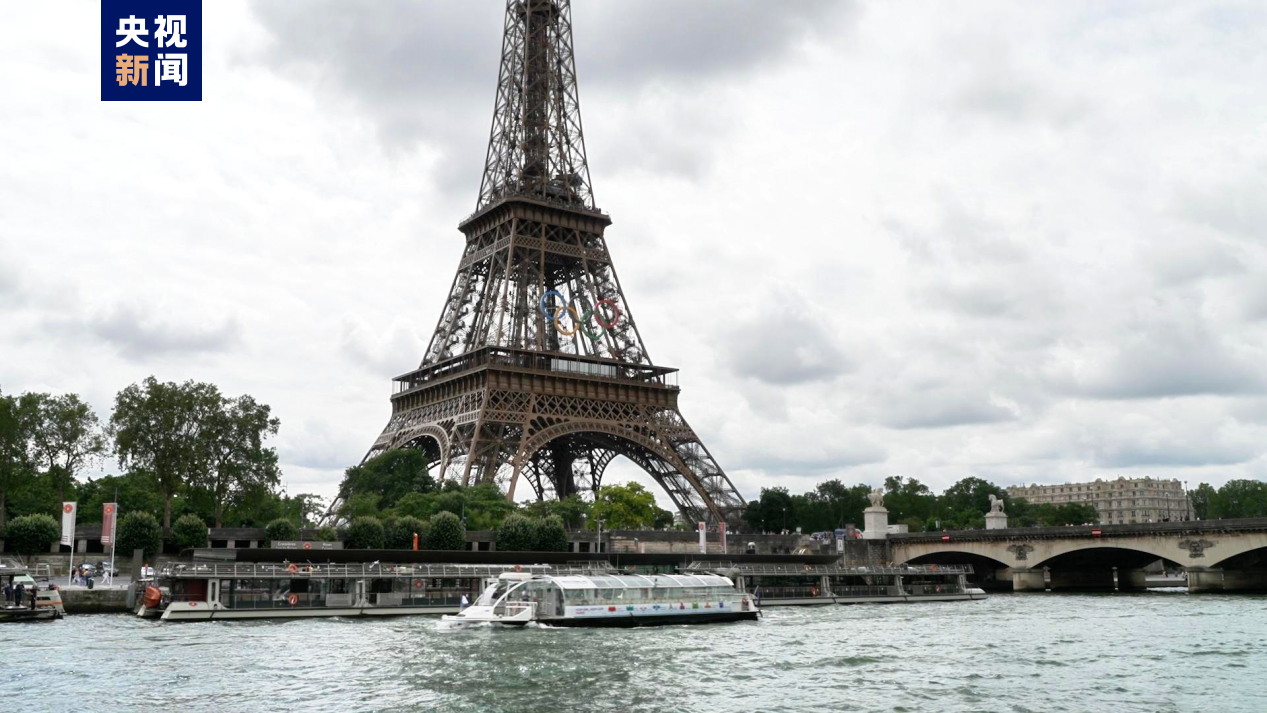
△ Paris urban landscape
Nunez stressed that it plans to deploy an average of about 30,000 police and military police every day during the Olympics, and that 18000 soldiers will be reinforced at any time. Three French special forces will also participate in Olympic security, which is the largest military mobilization on French territory since the end of World War II.
I hope the upcoming 33rd Summer Olympics in Paris will become one of the most unforgettable events in Olympic history.







